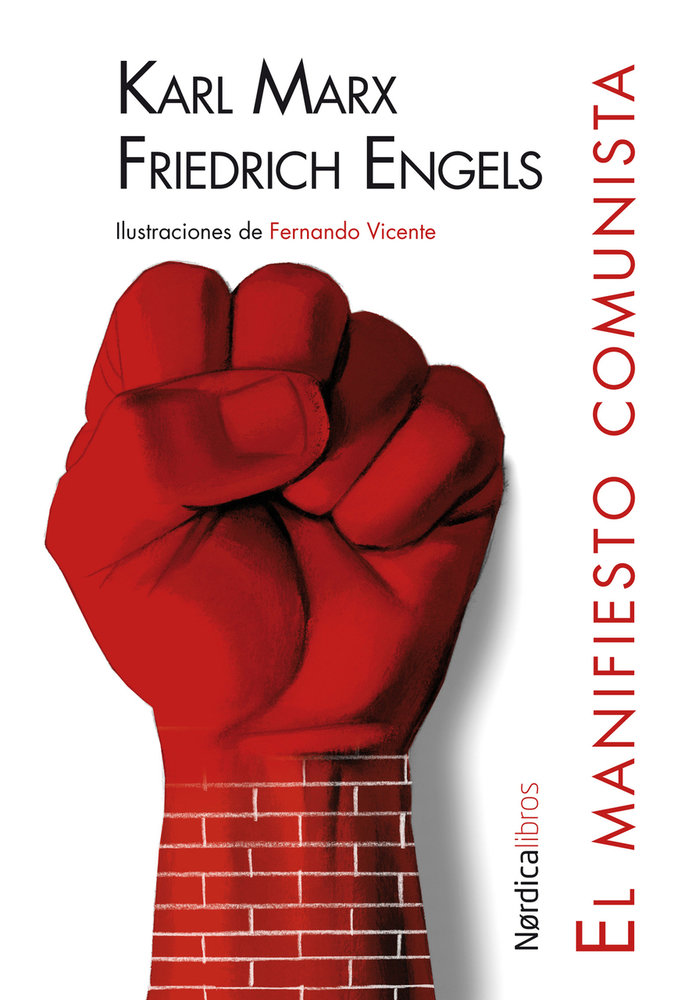Este manifiesto, publicado en Londres en 1848, fue redactado por Marx y Engels por encargo del segundo congreso de la Liga Comunista. Además del programa de un partido, es un lúcido análisis de la sociedad capitalista del siglo XIX que, en muchos aspectos, sigue siendo actual.
No estamos ante un panfleto sino ante un clásico del pensamiento occidental que ha llegado a ser el libro más difundido tras la Biblia y cuyos planteamientos deben ser conocidos, pues han encarnado los sueños de millones de personas y son parte fundamental de la historia del movimiento obrero.
Es además un texto de gran valor literario y, con el impresionante trabajo gráfico de Fernando Vicente, el mejor acceso a la obra filosófica y política de Karl Marx.
«Muy conveniente, ahora que tantos fantasmas de signo contrario (ideológicos y de carne y hueso) recorren la vieja Europa. Si creen que su contenido es pura arqueología, reléanlo sin prejuicios. Comprobarán que, como les sucede a todos los clásicos, es una obra que "nunca termina de decir lo que tiene que decir"»
Manuel Rodríguez Rivero, El País


